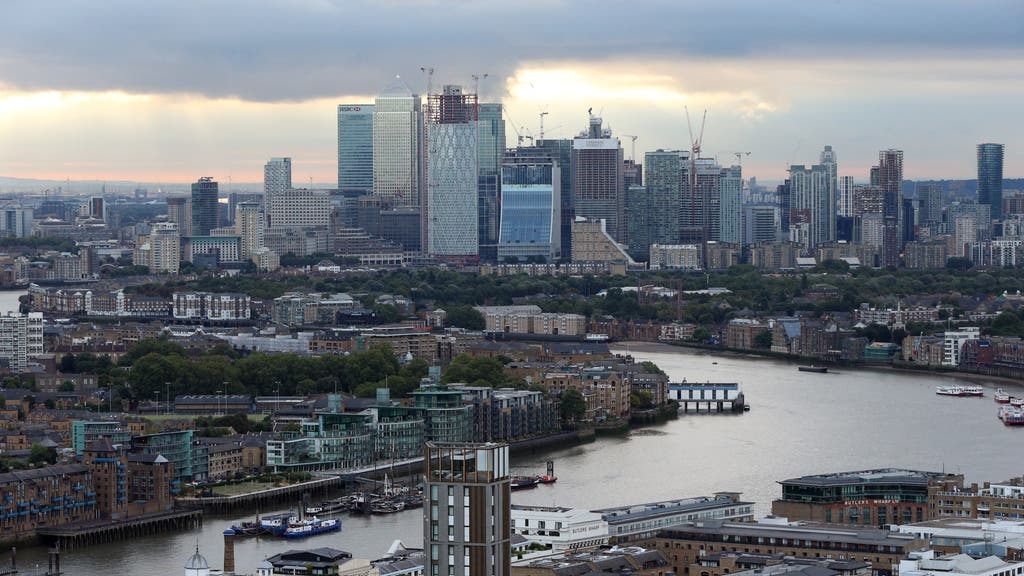Workplace racism is ruining Black people’s mental health, survey finds
Exclusive: Living through the Covid-19 pandemic has also made it more likely that people from a minority ethnic background have experienced racism or other events that have harmed their mental health

Almost half (45 per cent) of Black people living in Britain have experienced racism at work, a new survey has revealed.
This is compared with one quarter (26 per cent) of East Asian workers, 23 per cent of employees of South Asian background, and 24 per cent of mixed-race workers.
Over half (56 per cent) of those employees who reported they have suffered racism at work said it had negatively impacted their mental health and wellbeing.
The findings have been published in a new research report entitled Mental Health and Race At Work commissioned by the City Mental Health Alliance (CMHA), in partnership with Lloyds Banking Group.
Informed by insights from an extensive YouGov survey assessing the impact of mental health at work, the study lays bare the havoc wreaked upon workplace wellbeing by racism and Covid-19.
Poppy Jaman, CEO at CMHA, said: “It’s clear that when it comes to mental health and race at work, businesses can affect their employees in one of two main ways.
“They can provide an inclusive environment, that is anti-racist, creates a sense of belonging and which offers appropriate and representative mental health support to those employees who might need it, so that all of their people can thrive.
“Or, they can be a source of stress and contribute to poor mental health because of discriminatory practices and a non-inclusive culture, which is clearly unacceptable. Businesses have a responsibility and an opportunity to build not only diverse but also inclusive and mentally healthy workplaces.”
Some 44 per cent of Black, Asian and minority ethnic workers feel they need to change aspects of their behaviour to fit in at the office, compared to only a quarter (27 per cent) of white British people, the research also highlighted.

In addition, around half of Black (52 per cent), East Asian (49 per cent) and South Asian (49 per cent) employees who have experienced poor mental health over the last 12 months said that not fitting in at work had been a significant factor.
Nearly two-thirds of all employees (60 per cent), across all ethnicities, reported that the global pandemic has had a negative impact on their mental health and wellbeing.
Living through the pandemic has also made it more likely that people who are Black or from a minority ethnic background have experienced racism or other difficult events that have negatively impacted upon their mental health.
Around one in six (14 per cent) of Black and South Asian respondents said that they had a traumatic personal or family experience because of Covid-19, compared to 6 per cent of their white British counterparts.
Since the start of the pandemic, South Asian people were twice as likely (18 per cent) to have experienced a bereavement than their white counterparts (9 per cent); some 14 per cent of Black people had lost a loved one.
The report carried a number of recommendations to guide businesses to build workplaces that will support positive mental health for their staff, especially those who are Black or from a minority ethnic background, including the prioritisation of inclusion and recognising specific challenges these groups face.
Nathaniel Peat, a Black Business Advisory Committee member with Lloyds Banking Group, told The Independent: “These types of reports are needed to show the problem that exists for Black people in the professional world.
“I’m very happy that Lloyds Banking group have made it a priority by forming the Black Business Advisory Committee in efforts to really make a difference.
“It’s about driving cultural change, recruitment and progression across the group to meet the Race Action Plan goals. Hopefully we will begin to see the changes we need to see soon.”
Join our commenting forum
Join thought-provoking conversations, follow other Independent readers and see their replies
Comments
Bookmark popover
Removed from bookmarks